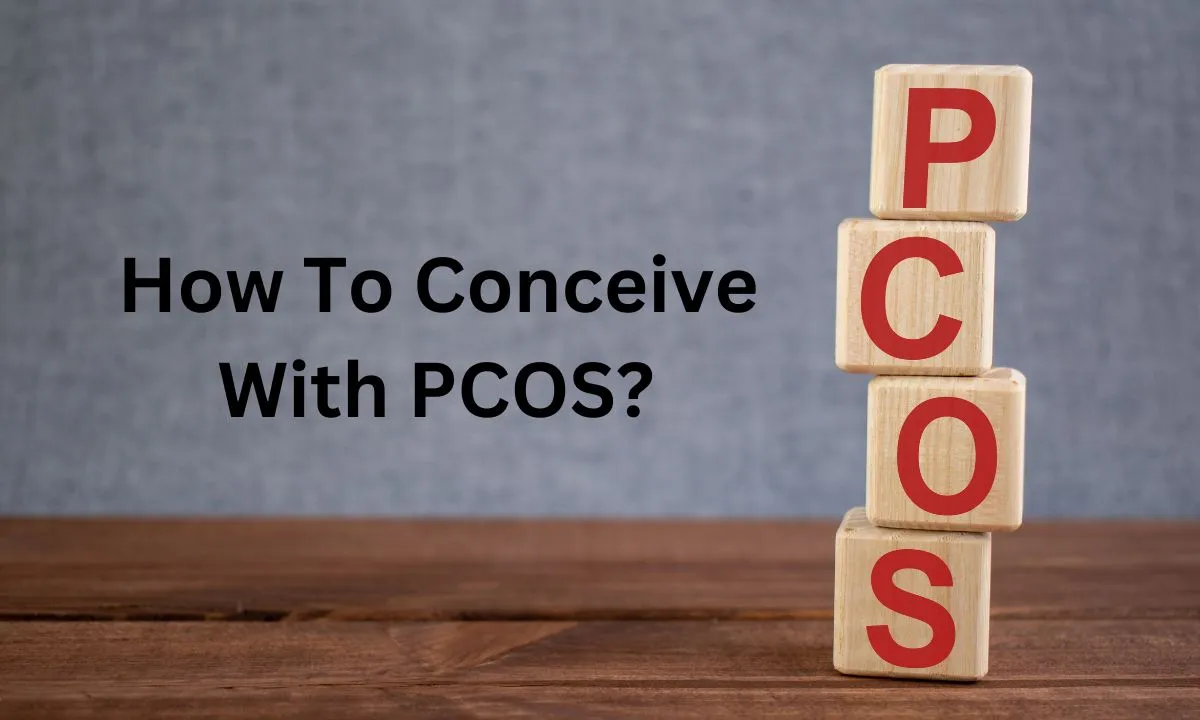
Struggling to conceive with PCOS? You’re not alone. Many women face challenges in conceiving due to this hormonal disorder. But with the right knowledge and strategies, it is possible to overcome these hurdles.
In this comprehensive guide, we’ll explore effective tips and approaches to help you increase your chances of conception in 2025. From understanding PCOS to implementing lifestyle changes and exploring medical treatments, we’ll provide you with valuable information to embark on your journey towards parenthood.
Related: Do Guys Sleep A Lot When They Get A Girl Pregnant?
What is PCOS
Polycystic Ovary Syndrome (PCOS) is a hormonal disorder that affects women of reproductive age. It’s characterized by a combination of symptoms, including:
- Irregular periods: Missed periods or periods that are too frequent or too heavy.
- Excess hair growth: Excessive hair growth on the face, chest, and abdomen (hirsutism).
- Acne: Severe acne that doesn’t improve with treatment.
- Weight gain: Difficulty losing weight or gaining weight easily.
- Thinning hair: Hair loss on the scalp.
Related: How Often Do I Need A Pap Smear?
10 Surprising Facts About PCOS
- Cysts Aren’t Always Present: Despite its name, PCOS doesn’t always involve the presence of cysts on the ovaries. Many women with PCOS have normal-looking ovaries.
- Weight Gain Isn’t Always a Factor: While weight gain is a common symptom of PCOS, it’s important to note that not all women with PCOS experience significant weight gain.
- Hair Loss and Acne: PCOS can lead to hair loss, particularly on the scalp, and can also cause acne breakouts.
- Male-Pattern Hair Growth: Women with PCOS may experience excessive hair growth in male-pattern areas like the face, chest, and abdomen.
- Sleep Apnea: Sleep apnea, a condition where breathing stops and starts during sleep, is more common in women with PCOS.
- Endometriosis: There is a higher prevalence of endometriosis, a condition where tissue similar to the uterine lining grows outside the uterus, in women with PCOS.
- Heart Disease Risk: PCOS increases the risk of heart disease due to factors like insulin resistance, high blood pressure, and high cholesterol.
- Depression and Anxiety: Women with PCOS are more likely to experience depression and anxiety.
- Infertility: PCOS is a common cause of infertility in women due to irregular ovulation and other hormonal imbalances.
- PCOS May Be Genetic: There is a strong genetic component to PCOS, suggesting that it runs in families.
What Are The Causes Of PCOS
The exact cause of PCOS is unknown, but it’s believed to involve a combination of factors, including:
- Hormonal imbalances: PCOS is associated with high levels of androgens (male hormones) and low levels of progesterone.
- Insulin resistance: PCOS is often linked to insulin resistance, a condition where the body doesn’t use insulin effectively.
- Genetics: PCOS often runs in families, suggesting a genetic component.
Related: Tips to Prepare Your Body for Pregnancy
What Are The Complications Of PCOS
If left untreated, PCOS can lead to several complications, including:
- Infertility: PCOS can make it difficult to conceive due to irregular ovulation.
- Miscarriage: Women with PCOS may have a higher risk of miscarriage.
- Type 2 diabetes: PCOS is a risk factor for developing type 2 diabetes.
- Heart disease: Women with PCOS may have a higher risk of heart disease, including high blood pressure and high cholesterol.
- Sleep apnea: PCOS is associated with a higher risk of sleep apnea, a condition where breathing stops and starts during sleep.
Related: Genetic Testing Before Pregnancy
How is PCOS diagnosed
Diagnosing PCOS usually requires taking a close look at medical history, doing a physical exam, running blood tests to check hormone levels, and getting an ultrasound to see if there are cysts on the ovaries. An early diagnosis can help open doors to treatments that improve the chances of conceiving.
Clinical Studies on PCOS
This study on PCOS investigated the effectiveness of Myo-Inositol and oral contraceptives (OCPs) for treating PCOS in lean teenagers. Results showed that Myo-Inositol alone was particularly beneficial for younger teenagers, reducing weight, improving metabolism, and regulating hormones. For older teenagers, combining Myo-Inositol with OCPs was effective in preventing weight gain and improving hormonal parameters. Overall, Myo-Inositol appears to be a promising treatment option for PCOS adolescents, offering a potential alternative to traditional hormonal therapies.
How To Get Pregnant With PCOS in 2025
Healthy Eating
Eating well is key to managing PCOS and supporting fertility. Focus on:
- Whole foods like fresh fruits, veggies, whole grains, and lean proteins.
- Low glycemic foods that help keep insulin steady, like beans, lentils, and non-starchy veggies.
- Healthy fats from avocados, nuts, and olive oil while cutting back on trans fats and sugar.
Exercise and Weight Balance
Regular exercise can improve insulin sensitivity and help balance hormones. Try to get at least 150 minutes of moderate exercise each week. Even a small amount of weight loss—5-10%—can significantly improve ovulation for many women with PCOS.
What are the medical routes to facilitate conception with PCOS
Medicinal Avenues
Several medications support ovulation regulation, including:
- Clomiphene Citrate: Often the first option for encouraging ovulation by stimulating hormones.
- Metformin: Primarily used to manage insulin, which can improve menstrual cycles and support ovulation.
- Hormonal Treatments: Birth control pills may be used initially to help regulate cycles before trying to conceive.
Fertility Procedures
When medication alone does not suffice, fertility procedures may open new doors:
- Intrauterine Insemination (IUI): In this process, sperm is placed directly into the uterus around the time of ovulation. This is a simpler procedure often recommended for mild fertility issues.
- In Vitro Fertilization (IVF): When other options fail, IVF can be considered. It involves retrieving eggs, fertilizing them outside the body, and then placing the embryo in the uterus.
Advanced Interventions
Surgical Techniques
For some, a minimally invasive surgery called laparoscopic ovarian drilling can help bring back normal ovulation by reducing excess testosterone from the ovaries.
Donor Egg Usage
In cases where ovarian function is low or other treatments haven’t worked, using donor eggs can be an option. This allows women to carry a pregnancy with the help of a healthy egg from a donor.
Emotional Resilience and Counseling
The emotional weight of infertility is real and heavy. Connecting with a counselor or joining support groups can offer a comforting space to share and find strength alongside others on the same path.
Related: Salt Pregnancy Test: Myth or Miracle?
Looking Ahead: PCOS Research Frontiers
Research in PCOS is ongoing, with promising treatments focusing more on individualized care. Advances in technology could soon offer new fertility solutions specifically designed for women with PCOS.
Boost Your PCOS Conception Chances with Clearblue

Conclusion
While the path to conceiving with PCOS can be tough, there are more options than ever to help make it possible. From lifestyle changes to medical treatments, knowing what’s available gives you control over your journey. You are not alone, and with support, hope, and informed choices, your dream of becoming a parent is within reach.
What is PCOS?
PCOS (Polycystic Ovary Syndrome) is a hormonal disorder that affects women of reproductive age. It can cause irregular periods, excess hair growth, and acne.
u003cstrongu003eHow does PCOS affect fertility?u003c/strongu003e
PCOS can interfere with ovulation, making it difficult to conceive. Hormonal imbalances and insulin resistance can also play a role.
When should I see a doctor if I have PCOS and difficulty conceiving?
It’s recommended to consult a doctor if you have PCOS and are trying to conceive for more than six months.
u003cstrongu003eWhat are the chances of conceiving with PCOS?u003c/strongu003e
The chances of conceiving with PCOS vary depending on the severity of the condition and the chosen treatment. Many women with PCOS can successfully conceive with the right approach.
Can PCOS affect the health of the baby?
Women with PCOS are generally at a higher risk of certain pregnancy complications, such as gestational diabetes and preeclampsia. However, with proper monitoring and care, most women with PCOS can have healthy pregnancies.












